4 Local Organizations to Support on Transgender Day of Visibility
These D.C.-area groups provide essential programs and services to the transgender community

This International Transgender Day of Visibility (TDOV), we’re highlighting four incredible D.C.-area organizations dedicating to supporting and lifting up the transgender community.
TDOV is an annual event, occurring March 31, that celebrates transgender people and their contributions to society, and raises awareness of the discrimination or other obstacles that transgender people face in their daily lives.
While national LGBTQ groups are offering a number of online campaigns to help people show support for trans people, these local organizations are equally deserving of your attention and praise — and, if possible, your financial support.
In particular, the ongoing COVID-19 pandemic has required a retooling of strategies, as in-person events are postponed and services move online. Your support can make a world of difference — whether today, in honor of TDOV, or any time of year.
1. Safe Space NOVA
An Alexandria-based LGBTQ youth group, Safe Space NOVA provides social activities and a support network to LGBTQ teens in Northern Virginia, including mentorship, scholarships, and professional caseworker support. Approximately one-quarter of its clients are trans or nonbinary youth.
With Virginia’s stay-at-home order in effect until June 10, in-person meetings are postponed, but Safe Space NOVA is seeking to provide assistance to youth who find themselves without a support network due to the closure of schools and colleges.
Although the organization has not historically provided counseling to at-risk youth, executive director Jordan Costen says Safe Space NOVA is taking advantage of the time off by expanding its offerings, bringing a school psychologist on staff who can meet the mental health needs of its client base.
“While we can’t have mass gatherings right now, we want to make sure that if you’re feeling some kind of way, whether it involves anxiety, suicidal ideation, or any other issues, we can connect you with the right resources, whether it’s in-house or externally,” Costen says.
For more information about Safe Space NOVA, visit www.safespacenova.org. The organization accepts donations via PayPal at www.paypal.com/paypalme2/safespaceva.

2. Supporting and Mentoring Youth Advocates and Leaders (SMYAL)
SMYAL is dedicated to serving LGBTQ youth in the D.C. area, and its services include leadership development, transitional housing, and a number of after-school programs including discussion groups and self-care workshops.
Samia Lalani, Assistant Program Director, says the organization has responded to COVID-19 by moving its drop-in programs online, using Zoom to connect with youth and steer them to needed resources.
Prior to the epidemic, SMYAL had already established an online footprint through Q Chat Space, a platform where youth can “check in” and participate in live discussions on a designated topic on Friday afternoons from 4:30-5:30 p.m. The platform also allows participants to connect and continue chatting with each other after the discussion group has ended.
Since its physical space temporarily closed, SMYAL has launched two additional daily virtual meetings using chat platform Discord, one held from 11 a.m.-12 p.m. and another from 1:30-2:30 p.m. Monday through Friday.
“Essentially, a number of youth use Discord to game, and talk to each other while gaming,” says Lalani. “So we decided to switch from Zoom, which can feel a little too businesslike for youth, to Discord, because many of them are already on that platform, and it’s a good way to engage them.”
SMYAL has also increased the frequency with which its “Little SMYALs” program, designated for LGBTQ youth ages 6-12, meets, changing it from a monthly in-person meeting to a twice-monthly virtual meeting.
“We know there’s an increased need for that program, especially now that kids are at home with their parents, and may be feeling isolated from their peers,” Lalani says.
Lastly, beginning today — to coincide with the Transgender Day of Visibility — the organization will launch a biweekly support group for trans and nonbinary youth who have been forced to delay or cancel gender-affirming surgeries due to hospitals cutting back “non-essential” services to deal with the COVID-19 pandemic.
For more information on SMYAL, visit www.smyal.org. To donate, visit app.etapestry.com/onlineforms/SMYAL/donatenow.

3. DC Area Transmasculine Society (DCATS)
The DC Area Transmasculine Society was created to provide a space for transmasculine folks to find support and meet others in the community with whom they have shared experiences.
The group also provides resources that help transmasculine individuals overcome the social, economic, and health-related barriers to living authentically, including providing free chest binders to those who cannot afford them.
Unfortunately, the organization has lost its regular meeting place due to the COVID-19 pandemic, and is now trying to keep its members engaged virtually.
“It’s more difficult to set up online get-togethers for folks. Lots of people don’t have the capacity, in terms of the technology required to participate in those virtual meetings,” says Jamison Crowell, the group’s executive director. “It’s also quite different: I think a number of people come to our meetings specifically to find that in-person connection, and may already have some kind of online community. So we’re trying to do what we can, but it’s more difficult to set those things up.”
Crowell says that the group’s monthly meetings for transmasculine people and their partners are still occurring, but are meeting via Zoom. The group — whose ages generally range from their early 20s to early 30s — also has twice-weekly “chat room hours” on Tuesday and Friday evenings, and has been experimenting with other types of get-togethers, in the hope of holding three each month.
For instance, DCATS recently held a Netflix Party where members watched the 1991 children’s movie Hook. However, Crowell notes, setting up a Netflix account, or establishing a speedy Internet connection on a computer capable of handling the movie streaming site or the Chrome browser extension, may be cost-prohibitive for some of its members.
“When we hold a group activity, we want to make sure there aren’t any barriers to participating,” Crowell says.
For more information on the DC Area Transmasculine Society, visit www.dcats.org. Donations can be accepted via PayPal www.dcats.org/donate or via Venmo using the handle @GiveDCATS.

4. Casa Ruby
Casa Ruby is an LGBTQ community center that specializes in serving members of the transgender, immigrant, and Spanish-speaking communities, and provides social services and programs that cater to some of the city’s most vulnerable populations.
While many service organizations in the District have had to suspend onsite services, Casa Ruby is continuing to operate its drop-in and crisis intervention center.
“We cannot close and ask our clients to call from home. We are their home,” the center’s founder, Ruby Corado, said in a statement posted on the group’s website. “For LGBTQ youth experiencing homelessness and vulnerability, we are their first responders. And now they need us more than ever.”
In addition to the 24-hour drop-in service, Casa Ruby operates three separate shelter and housing programs targeted to people experiencing homelessness or housing insecurity. The center also offers preventative health services, social services, and therapeutic and mental health services for victims of violence.
Casa Ruby also features a dedicated Trans Life Center, providing hot meals, clean clothing, computer access, and legal support for those in the process of gender transition.
“Many of our youths and staff are understandably frightened. But despite our fear, we must be there for each other as a family,” Corado said. “Every single day we must be here for our youth. We hope that you will be here for us too and support in any way you can.”
For more information on Casa Ruby, visit www.casaruby.org. To donate, visit www.casaruby.org/donate.
Read more:
Idaho governor signs two bills that discriminate against the transgender community
Transgender woman fatally stabbed in the neck in Harlem
Seattle man accused of threatening two gay men with a syringe released from prison
Support Metro Weekly’s Journalism
These are challenging times for news organizations. And yet it’s crucial we stay active and provide vital resources and information to both our local readers and the world. So won’t you please take a moment and consider supporting Metro Weekly with a membership? For as little as $5 a month, you can help ensure Metro Weekly magazine and MetroWeekly.com remain free, viable resources as we provide the best, most diverse, culturally-resonant LGBTQ coverage in both the D.C. region and around the world. Memberships come with exclusive perks and discounts, your own personal digital delivery of each week’s magazine (and an archive), access to our Member's Lounge when it launches this fall, and exclusive members-only items like Metro Weekly Membership Mugs and Tote Bags! Check out all our membership levels here and please join us today!




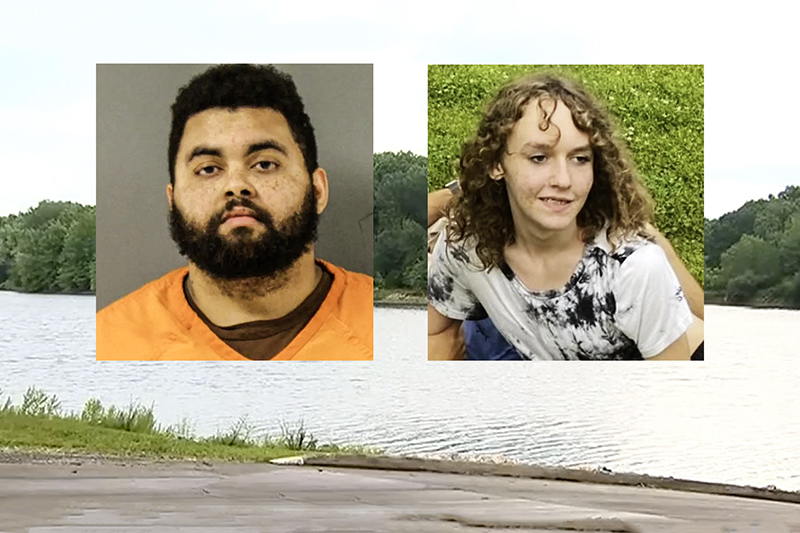
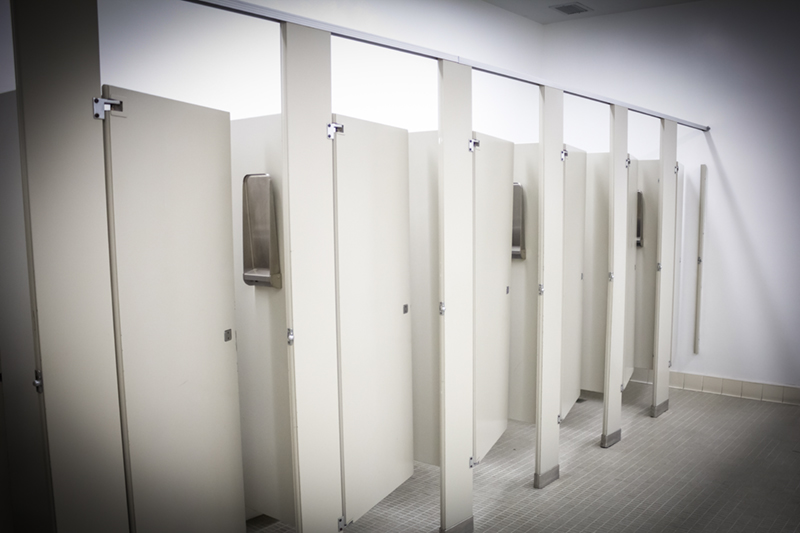
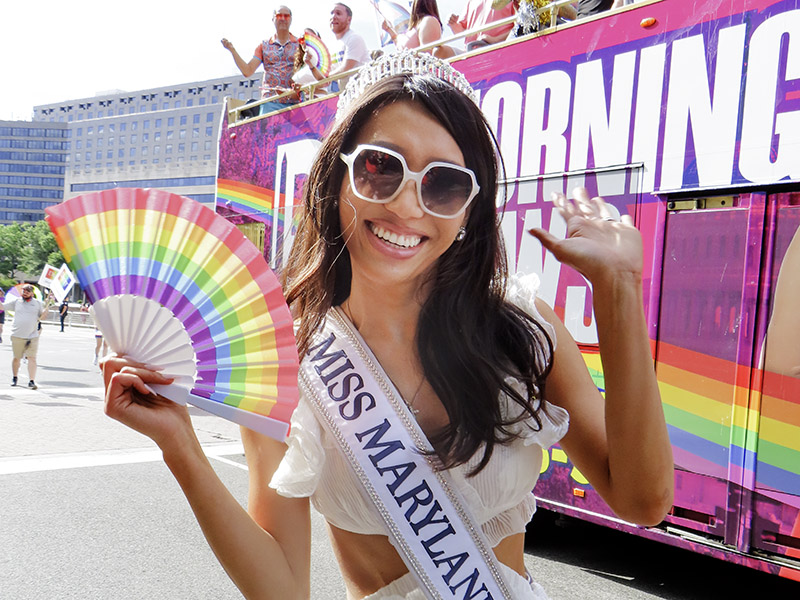














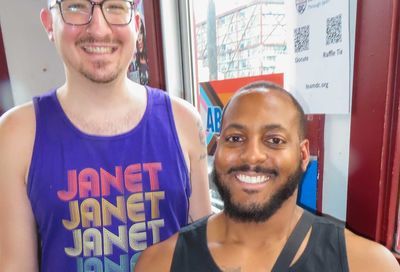
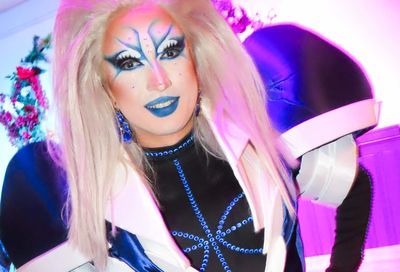
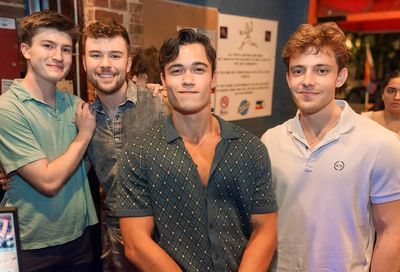
You must be logged in to post a comment.